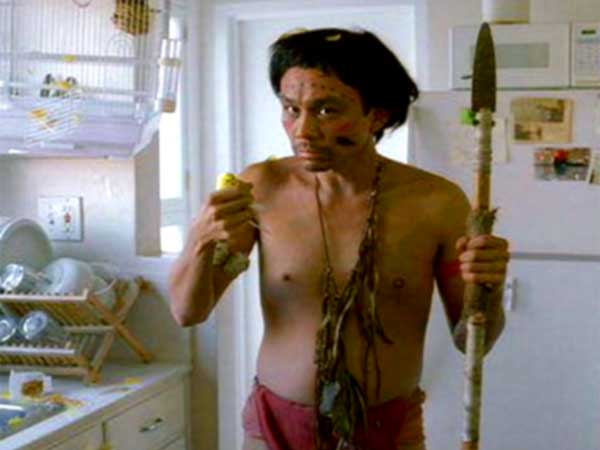Here's the anthropological controversy explored in the documentary
Secrets of the Tribe:
The Yanomami ScandalBy David Maybury-LewisTThe Yanomami (who are also called Yanamamo, Yanomam, and Sanuma) are a remote group of some twenty to thirty thousand Indians who live in over a hundred villages scattered on both sides of the border between Venezuela and Brazil. They are famous in the anthropological literature because of a long-running debate about whether or not they are particularly violent. Napoleon Chagnon, an anthropologist who recently retired from the University of California at Santa Barbara, has studied the Venezuelan Yanomami for most of his professional life, and has argued that they are indeed violent, so much so that he subtitled his book about them "The Fierce People" and maintained the subtitle through three editions of the work. In more recent editions he has dropped the subtitle, but continues to defend the thesis that the Yanomami are fierce, warring with each other to capture women, so that their best warriors can maximize their reproductive success. Napoleon Chagnon’s sometime teacher and longtime mentor was James Neel, a distinguished human geneticist (now dead) at the University of Michigan. Neel became especially interested in studying the genetics of remote tribal populations and for that reason went with Chagnon and others to work among the Yanomami of Venezuela in the late 1960s and early 1970s.
Now, in a recently published book whose advance copies and excerpts in The New Yorker have created a furor, Patrick Tierney, an investigative journalist, has accused both Neel and Chagnon of committing serious abuses against the Yanomami.And:
He claims that Chagnon interfered massively with the lives of the Yanomami in all sorts of ways. He claims that the films he made about them were particularly intrusive and many of the scenes in them were staged to show off the Yanomami as both fierce and primitive. The warfare which he highlighted as characteristic of Yanomami culture resulted more often than not from their battles over the trade goods that Chagnon distributed. His behavior in the field was insensitive and often deliberately so, as when he bribed or pressured children or other susceptible Yanomami to give him information on taboo topics. In sum, Tierney indicts the harmful effects of Chagnon's activities among the Yanomami, together with his portrayal of them as warlike savages and the competition between Chagnon and other filmmakers and TV crews to bring back footage of just contacted primitives.And:
The charges against Napoleon Chagnon ... are, essentially, that he has damaged the Yanomami by his activities in the field but most of all by his insistence on portraying them as primitive savages when the evidence does not clearly support his conclusions. These charges are not new. They have in fact been made repeatedly by numbers of anthropologists over the years and in a letter sent by the Brazilian Anthropological Association to the American Anthropological Association in the early 1980s. Chagnon has responded to them by suggesting that he has the scientific evidence to prove his assertions, and that his critics only attack him on ideological grounds.
Chagnon interprets his evidence to show that the Yanomami are fierce and warlike and that they fight over women. These conclusions are enthusiastically believed by many sociobiologists who know little about the Yanomami or about South American Indians but welcome Chagnon’s analysis as lending support to their theories about the nature of primitive man and of human nature. Chagnon poses as the scientist "telling it like it is," but since the way he tells it is challenged by large numbers of reputable anthropologists, including some who have also studied the Yanomami, Chagnon’s interpretation should not be accepted without question.Comment: Why is the Chagnon controversy significant? Chagnon has suggested Indians in their "primitive" or "natural" state are incredibly violent. People have generalized from the Yanomami to all Amazon Indians or even all Indians. As this stereotypical belief filters into the public consciousness, you get results such as the
Zagar and Steve commercials,
End of the Spear, and
Indiana Jones and the Kingdom of the Crystal Skull.
For more on the subject, see
Savage Indians and
Uncivilized Indians.
Below: Zagar, a Yanomami-style savage who eats a pet bird because he's totally ignorant of civilized customs.



"Below: Zagar, a Yanomami-style savage who eats a pet bird because he's totally ignorant of civilized customs."
ReplyDeleteAlready as civilized as Ozzy Osbourne, but that still means there's a ways to go.